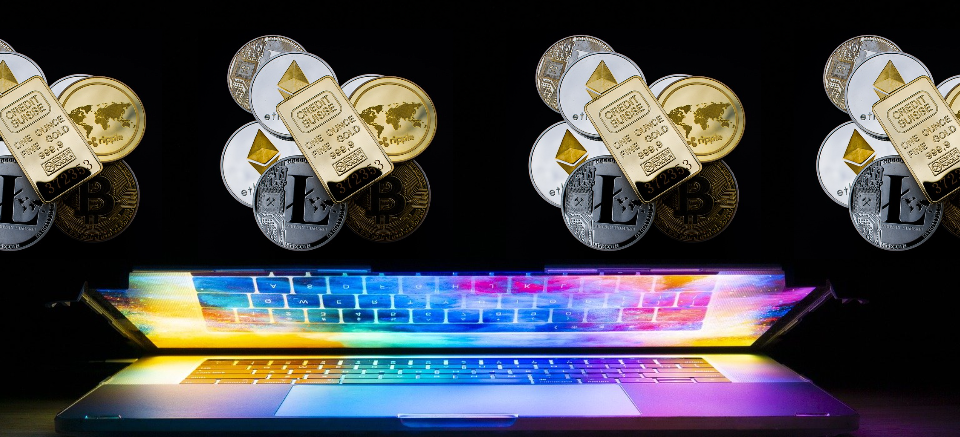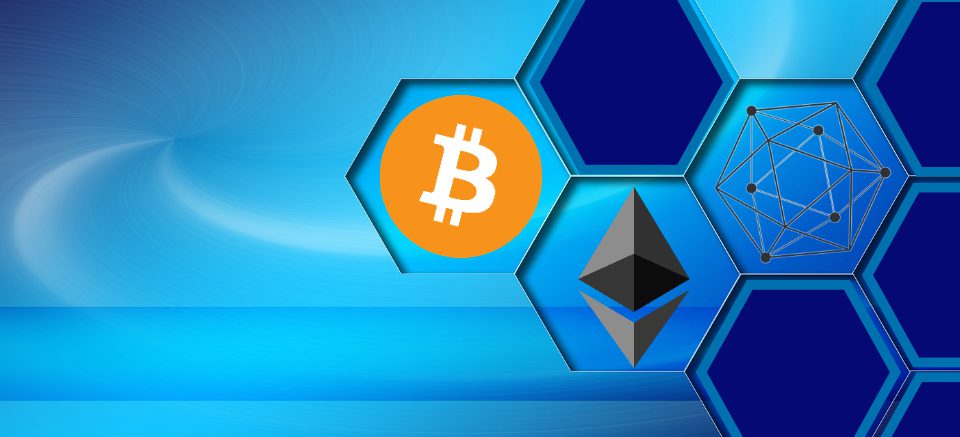- Contact us
- +599-9 461 4545
- info@dcsx.cw
The Impact of the BATs & the GAFAs on Business & Finance

Understanding the Rise of TechFins
September 6, 2021
Meet the Major Blockchain Players
November 10, 2021The Impact of the BATs & the GAFAs on Business & Finance

Publication 6. 2021
The BATs (Baidu, Alibaba, and Tencent), and the GAFAs (Google, Apple, Facebook, and Amazon) are the acronyms for the big players in TechFin from China and the U.S. In our previous publication “Understanding the Rise of TechFins“ we discussed the rise of these companies and how they are constantly trying to gain an advantage to win the race. Clearly, as new players in the financial industry with a sharp “customer-centric approach”, they are disrupting the traditional way of doing finance. But they also have an impact on the business industry as a whole through their services with third-party suppliers.
In the U.S. there are no clear specific regulations for digital platforms, in particular online marketplaces. This gives those companies within this digital space an advantage to implement mandates that are not necessarily always beneficial for other businesses, in particular SMEs, that are using their services.
The BAT Impact
 China is rapidly changing into a cashless society leaving the dependency on fiat money behind. The digital payment growth in China is certainly a significant achievement of the BATs and several initiatives in the region have been funded by them to expand digital payments. However, the hurdles of digital payments are not very often discussed. What happens when there is no electricity or internet when scanning the QR code? What will happen to those living in rural areas? These are valid questions that can eventually sprout new services and products to maintain and facilitate the digital payment framework.
China is rapidly changing into a cashless society leaving the dependency on fiat money behind. The digital payment growth in China is certainly a significant achievement of the BATs and several initiatives in the region have been funded by them to expand digital payments. However, the hurdles of digital payments are not very often discussed. What happens when there is no electricity or internet when scanning the QR code? What will happen to those living in rural areas? These are valid questions that can eventually sprout new services and products to maintain and facilitate the digital payment framework.
Similarly, to the GAFAs the BATs have enjoyed significant benefits and strengthened their financial position from the fact that the digital age is a new territory where regulators are slowly catching up. Having said that, however, there definitely have been efforts from the regulators to prevent monopolies and unfair competition. This would allow a more open competition and level playing field for other companies like, “Pinduoduo”, “NetEase” and “ByteDance” to compete. With the flow of competition offering payment alternatives the TechFins continue to grow in China, but changes can be seen on the horizon. China will implement a digital currency with the objective according to Chinese Government officials to strengthen the monetary system and weaken the role of China’s big tech in the digital economy. Once the digital yuan is in wide circulation, it will likely impact the digital-payments operations of China’s big tech.
The GAFA Impact
 Unlike China, the U.S. still values fiat money as its easily printed and managed by the Federal Reserve, the central bank of the U.S. However, there is high interest in a digital economy. Digital payment solutions such as Amazon Pay, Google Pay, and Apple Pay have been provided by Tech companies and have been successfully implemented and are even functioning on an international level. The impact of the GAFA in the U.S. has mostly been the modification of consumeristic behavior of their customers, the influence on opinion in politics and pop culture, and establishing an actual monopoly on their business.
Unlike China, the U.S. still values fiat money as its easily printed and managed by the Federal Reserve, the central bank of the U.S. However, there is high interest in a digital economy. Digital payment solutions such as Amazon Pay, Google Pay, and Apple Pay have been provided by Tech companies and have been successfully implemented and are even functioning on an international level. The impact of the GAFA in the U.S. has mostly been the modification of consumeristic behavior of their customers, the influence on opinion in politics and pop culture, and establishing an actual monopoly on their business.
Using their customers’ data big tech has stimulated and influenced the buying behavior of their consumers through ads on their platforms. Think for example google maps showing ads for selective restaurants in the area you are driving in. And what about applications/apps constantly asking for your location, birthdate, gender, and phone number.
The GAFAs have expanded outside the U.S. and customer data privacy has been an issue for several countries mainly in Europe. Whistleblower and former intelligence officer Edward Snowden helped launch a global debate on privacy after revealing the National Security Agency’s mass surveillance programs in 2013. Europe’s response to this had been the implementation of General Data Protection Regulation or GDPR for short in the EU. Even so, Snowden continues to contribute to raising awareness about the security of data when people use new technologies like, for instance, the iOS 15 that claim to be nonintrusive and secure. In short: a very delicate topic.
The GAFAs, Facebook, and Google (YouTube), through their selective algorithms, can easily boost or repress news and topics as well as removing content and users from their platforms, thus essentially acting as a publishing company when in reality, they are not treated like a publishing company.
In the U.S., big techs have successfully established monopolies making it very difficult for “new” r competition. Companies that offer similar or even more innovative products using FinTech technology and that are successful in their first years in business will be absorbed by larger companies; examples include PayPal (eBay), YouTube (Google), WhatsApp (Facebook), and Instagram (Facebook).
BATs vs GAFAs: the fight is on
Even though China and the U.S. are rivals in the TechFin space it appears that the U.S.-based TechFins are willing to copy business strategies from the Chinese TechFins and vice versa.
Facebook is implementing a payment solution “Facebook Pay” through its messenger and WhatsApp services much like the WeChat payment solution. Amazon is providing small loan lending services through Amazon Lending like Alibaba Ant’s Online Small Loans. However, Ant still has the upper hand, for now, with the multiple licenses including banking, insurance, fund distribution, online credit, and asset management. Both Amazon and Alibaba want to expand their business and are fighting for their marketplace in the global market.
Tencent’s Tik Tok has encountered some challenges in the global market and is still trying to overcome them. Tik Tok has a large following among the young generation which carries with it the possibility of successfully influencing their opinion and consumeristic behavior like the GAFA’s did/and still do with the previous generation. .
The Trump administration demanded Tik Tok to sell its U.S. operations to a U.S. company to remain operational otherwise it would be banned. However, President Biden changed the course from Trump’s aggressive policy toward the app, by signing an executive order revoking the Trump administration ban on TikTok, and instead ordered the Secretary of Commerce to investigate the app to determine if it poses a threat to U.S. national security. Tik Tok thus far has remained operational in the U.S.
In India, TikTok was banned completely by their Ministry of Electronics and Information Technology on 29 June 2020, along with 223 other Chinese apps, with a statement saying they were “prejudicial to the sovereignty and integrity of India, defense of India, security of state and public order”. The ban was made permanent in January 2021. TikTok has also been banned in countries including Indonesia, Bangladesh, and Pakistan for allowing ‘immoral’ or ‘inappropriate’ content to be posted or hosted on their platform.
On August 5th, 2020, Facebook’s Instagram launched Instagram Reels across 50 countries, including the U.S to directly compete with TikTok. In late 2018, Facebook launched a TikTok clone called Lasso. The app didn’t take off as expected. Up next, Instagram launched Reels in Brazil on November 12, 2019, where it was called “Cenas”, to test how Instagram users would respond to a different sort of mobile video experience. Those tests steadily expanded outside the U.S. to markets like India and parts of Europe in 2020.
TikTok is also stepping up its game by offering users the possibility to post stories similar to Instagram with “TikTok Stories”. The product hasn’t been rolled out yet and it’s still in its testing stage. The objective is to make it easier to consume story content and it seems to be an interesting tool for advertisers to take advantage of.
While the competition continues between the BATs and The GAFAs, regulators are still figuring out how to ensure user data protection, fair competition, and maintaining a stable monetary system.
Final Thoughts
TechFins had the upper hand in their way of doing business by possessing enormous amounts of user data which is needed to provide the best customer experience. However, they often did not properly have the approval of their customers. This has led to the upgrade of the general terms and conditions agreement of many digital platforms wherein users agree for the company to use their information to provide them the best user experience. User data protection became an important issue that led to the implementation of GDPR in Europe.
The impact of big tech is very significant in finance as they are technically forcing traditional financial institutions to enter the digital race and making the future of finance “data-driven”. They also have a significant impact on the way of doing business in the digital era. On the one hand, they make it easier to do business with instant payment solutions and showcasing third-party products through ads to an existing customer base. On the other hand, they make it very difficult for smaller companies with a lower budget to become visible through their algorithms. In the end, the party with the highest budget wins.
Sources
Associated Press. April 30, 2021. China regulators order Tencent, other fintech companies to boost anti-monopoly measures. Market Watch. Last accessed September 14, 2021: https://www.marketwatch.com/story/china-regulators-order-tencent-other-fintech-companies-to-boost-anti-monopoly-measures-01619763711
BBC News. June 29, 2020. India Bans TikTok, WeChat and dozens more Chinese apps. Last accessed September 14, 2021: https://www.bbc.com/news/technology-53225720
Bloomberg. June 25, 2021. China crushed Jack Ma, and his Fintech rivals are next. Last accessed September 14, 2021: https://www.bloomberg.com/news/articles/2021-06-24/how-xi-and-the-ccp-turned-on-jack-ma-ant-and-china-s-fintech-companies
Garrett, G. October 19, 2017. Is China’s Huge Lead in the Fintech Race Insurmountable? Wharton Magazine. Last accessed September 14, 2021: https://magazine.wharton.upenn.edu/digital/is-chinas-huge-lead-in-the-fintech-race-insurmountable/
Hutchingson, A. August 4, 2921. TikTok is Testing “TikTok Stories” as it looks to expand creative options in the app. Social Media Today. Last accessed September 21, 2021; https://www.socialmediatoday.com/news/tiktok-is-testing-tiktok-stories-as-it-looks-to-expand-creative-options-i/604476/
Liao, R. June 9, 2021. Biden revokes and replaces Trump actions targeting TikTok and WeChat. TechCrunch. Last accessed September 14, 2021: https://techcrunch.com/2021/06/09/biden-revokes-and-replace-trump-actions-targeting-tiktok-and-wechat-report/
Lehman, E and Rothstein, J. June 23, 2021. In China, Cashless is King. The Diplomat. Last accessed September 14, 2021: https://thediplomat.com/2021/06/in-china-cashless-is-king/
Mark, J. July 15, 2021. Why China’s digital currency threatens the country’s tech giants. Atlantic Council. Last accessed September 14, 2021: https://www.atlanticcouncil.org/blogs/new-atlanticist/why-chinas-digital-currency-threatens-the-countrys-tech-giants/
Ringle, H. October 18, 2016. Edward Snowden talks privacy, surveillance at Valley cybersecurity conference. Phoenix Business Journal. Last accessed September 14, 2021: https://www.bizjournals.com/phoenix/news/2016/10/18/edward-snowden-talks-privacy-surveillance-at.html
Snowden, E. August 25, 2021. The All-Seeing “i”: Apple just declared war on your privacy. Substack. Last accessed September 14, 2021: https://edwardsnowden.substack.com/p/all-seeing-i
Pahwa, N. August 18, 2020. What Indians lost when the government banned TikTok. The Wire. Last accessed September 14, 2021: https://thewire.in/tech/india-tiktok-ban-government
Wang, J. October 2020. From banning to regulating TikTok: Addressing concerns of national security, privacy, and online harms. The foundation for Law Justice and Society. Last accessed September 14, 2021:https://www.researchgate.net/publication/344584442_From_banning_to_regulating_TikTok_Addressing_concerns_of_national_security_privacy_and_online_harms
Wenbo, L. November 18, 2020. Explainer: Ant’s rise from payment to lending empire. CGTN. Last accessed September 14, 2021: https://news.cgtn.com/news/2020-11-12/Explainer-Ant-s-rise-from-payment-to-lending-empire-VmqT6X2rSw/index.html
This publication is presented to you by the Dutch Caribbean Securities Exchange
Written by N. Martina. Edited by D. Intriago and R. Römer.
Download the PDF version of this article: EN




